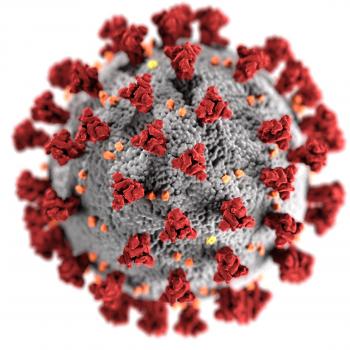
Disclaimer:
I am not a psychologist, a psychiatrist, or a therapist of any kind. I don’t have a degree in human behavior. In essence, this post is me talking a subject out that has long since had me concerned. That is, the idea that people are toxic, and how quickly we refer to them as such.
What may have started out as a helpful, albeit harsh analogy that a human can be “toxic” has perhaps turned into an excuse to get rid of anyone in our lives we deem unlikable, unsuitable, “hard to live with”, or simply annoying.
Do let me say this: There are indeed people in the world who are so dysfunctional and abusive that we need to distance ourselves from them. A lot of them, and others who can be described as downright evil, are in prison or should be in prison. But while I won’t dispute the fact that a portion of humanity needs to be locked up and the key thrown away, I will also say that the person who is often labeled as “toxic” in today’s world is simply perhaps like us, struggling through life, and we – their family, acquaintance, co-worker, fellow church member, etc – don’t possess one iota of patience for their drama, co-dependence, or “toxicity.”
What does one do with a toxic substance?
If wise, one throws it in the garbage. Depending on how toxic the substance is, one might even call the toxic waste experts and have them dispose of it properly. Either way, the substance needs to never be seen again, whatever the cost.
Is this how we are supposed to treat other humans?
I believe in capital punishment. Whoso sheddeth man’s blood, by man shall his blood be shed … In other words, a man who sheds the blood of an innocent man should consequently have his blood shed by man. The Bible is talking about innocence versus guilty. But look at the second part of that verse in Genesis 9:6. In it’s entirety, it says this:
Whoso sheddeth man’s blood, by man shall his blood be shed; for in the image of God made he man. (emphasis mine)
Many other Scriptures speak of people being made in the image of God, and how we should therefore treat them. And Jesus’ life was of course a perfect example of how we should treat those who we would, in all our modernity, refer to as “toxic.”
In essence, the Bible says we should love others. And If at all possible, as much as lieth in us, live peaceably with all men. (Rom. 12:18)
My fear is not that we are failing to weed out the murderers and either landing them in the slammer for life or executing them (though there’s room for improvement here as well). My fear is that we are taking people who are having major struggles in life, and disposing of them rather than loving them and attempting to live at peace with them.
I get it! I’ve had what many would call “toxic” people in my life, even recently. It’s tough. It’s stressful. It turned my hair gray, frazzled my nerves, and at one point … I left. For my mental and even physical health, I went away, but I did it as peaceably as I knew how, so as not to cause unnecessary waves of tumult in the “toxic” person’s life.
Relationships do at times need to come to an end. Paul and Barnabas felt the need to part ways. There are certain personalities that do not and cannot mesh. There are life goals that cannot (and at times should not) mesh. But we should be slow in coming to the decision to part ways.
Are we doing that? Or are we being quick to dispose of others at the very first or even second or third or fourth annoyance or offense? The real problem we have, I think, with forgiving others and continuing in relationships with them, is that it takes an inordinate amount of self-sacrifice, self-denial, and self-dying.
People are people. Sinful and difficult. Will we all too quickly dispose of them? Or will we love them in the hopes that they see the same light we’ve been shown, and by the power of the Holy Spirit, change their ways?
Please don’t misunderstand. I will say it again. There are people who exist that need to be removed from our life. Abuse is real and needs to be dealt with swiftly. What I’m questioning is how quickly we judge, and how quickly, in response to those judgments, we rid our lives of difficult, needy, hurting people, in essence because we are too busy, impatient, and unloving to show them a better way.
Be slow to anger. Forgive seventy times seven. Mathematically, that means four hundred and ninety times. But Scripture is not giving us a Math lesson. It’s instructing us to be willing to lose track of offenses, to make attempt after attempt to live peaceably, and to love.
Love one another.
Amidst the popular trend of labeling people toxic, I am of the opinion that some self-examination is in order. Are we being toxic in response to toxic people? Actions matter. So do reactions. Are we reacting in love, or in impatience and anger? When we label someone as toxic and decide it’s best to part ways, have we tried everything possible to live at peace? If so, it may be time to separate. But until we’ve exhausted all our resources, strength, and ability, let’s continue to love the difficult people of the world.
We are, after all, too often one of them.
















